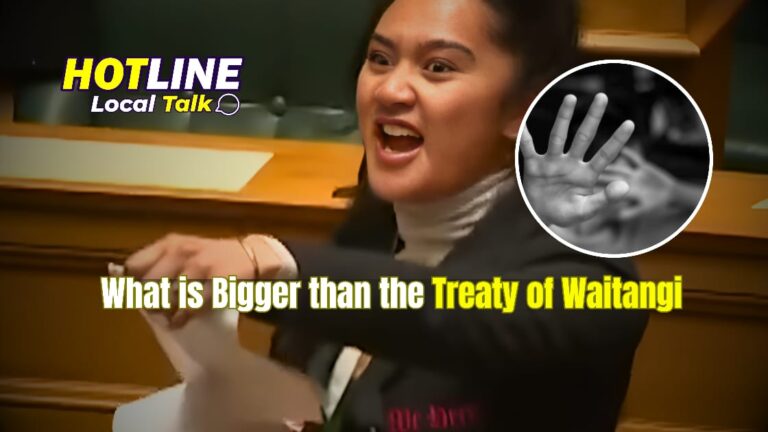A Nation Grapples with Unimaginable Pain
The Royal Commission into child slavery shocked New Zealand this week, unearthing harrowing truths about abuse in government institutions, churches, and NGOs. Survivors recounted years of neglect, exploitation, and betrayal. Their voices carried the weight of history and demanded attention. As the revelations unfolded, many questioned whether this inquiry symbolised a national reckoning more profound than even the Treaty of Waitangi’s legacy.
The Treaty, a cornerstone of New Zealand’s identity, represents partnerships and promises between Māori and the Crown. However, the systemic exploitation of children—cutting across ethnic, cultural, and socio-economic lines—suggested a collective wound that transcends historic agreements. Could this moment, shaped by deep pain and the pursuit of justice, bring New Zealand together in ways previously unseen?
Beyond Hikoi and Tribunal Bills
The week also saw debate around the current tribunal bill and a Hikoi demanding accountability and change. However, many wondered if these events risked being overshadowed by the sheer gravity of the Commission’s findings. The stories of abuse were not just about institutions—they were about the failure of an entire society to protect its most vulnerable.
Public reaction was mixed. While some rallied behind the Hikoi, others called for a pause, urging the nation to reflect more deeply. “It’s not about choosing one cause over another,” said social advocate Aria Tāwhaki. “It’s about understanding the layers of pain in our history and ensuring justice for all.”
Slowing Down to Reflect
As emotions ran high, there was a call to step back from the immediacy of social media. In the rush to take sides, important voices risked being drowned out. Community leaders urged New Zealanders to engage in thoughtful conversations, away from the noise of online platforms.
The need to slow down was echoed by educators and cultural leaders. “We have a chance to rebuild connections,” said Reverend Tomasi Vakauta, a Tongan community leader. “Understanding starts when we truly listen.”
Diwali: A Light in the Darkness
Amid the turmoil, Wellington’s Diwali celebrations offered a poignant metaphor. The festival of lights, celebrated by many Indian and other South Asian communities, symbolises the triumph of good over evil and light over darkness. This year, its message resonated far beyond cultural boundaries.
Local councillor Anika Sharma reflected, “Diwali reminds us that no matter how dark the times, there is always hope. As a nation, we must find that light and rise together.”
Embracing Wellington’s Multicultural Fabric
The diversity of Wellington was on full display as communities rallied to support survivors and promote unity. Flags of Tongan, Fijian, German, Croatian, French, Chinese, Indian, and Pakistani groups adorned civic spaces, symbolising inclusion. Each community brought its own perspective, enriching the dialogue around healing and justice.
Pakistani community leader Amir Ali said, “Being included in these discussions makes us feel part of the solution. It’s about creating a space where everyone feels they belong.”
Similarly, Croatian representative Ana Kovač spoke of shared responsibility. “No community is immune to injustice. But together, we can create a safer future.”
Balancing History and Healing
The Royal Commission’s findings demand accountability. Yet, they also demand something more profound: a collective commitment to healing. While the Treaty of Waitangi addresses historical injustices, the revelations of child slavery challenge New Zealand to confront failures that persist to this day.
This is not about diminishing the Treaty’s significance but expanding the nation’s capacity to honour all forms of justice. As the country reflects on these revelations, it must ask: what kind of society does it want to be?
Rising Together
In these challenging times, New Zealand stands at a crossroads. The path forward requires courage, empathy, and a willingness to listen. By embracing its multicultural identity and learning from the past, the nation can rise, much like Diwali’s light, from darkness into a brighter future.
As survivor advocate Mereana Pōtiki concluded, “This isn’t just about our pain. It’s about our strength. Together, we can build something greater than any treaty, bill, or Hikoi—a society where every child is safe.”
CONTRIBUTE
Have stories, yarns, mad scoops, or community news to share. We often pay for awesome content and life shattering stories. What have you witnessed?


